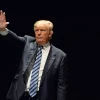As Federal Reserve officials consider whether to launch a digital version of the dollar, several former officials of one company with a direct stake in the outcome are working to inform the project, a new report based on public records finds.
At least five employees of Circle, which issues the world’s second-most popular stablecoin, have left the company over the past three years to work at the Boston Federal Reserve Bank as it researches how a U.S. digital currency might work. The project could have profound implications for the future of money — and for Circle’s business model. A new form of electronic cash minted by the central bank could “directly and adversely impact the demand” for Circle’s own, privately issued version, the company said in a federal filing last year.
The migration of Circle employees to the Boston Fed is documented in a study by the nonprofit Tech Transparency Project, which looks at ties between the crypto industry and the government. The report illuminates the the rapid emergence of a revolving door between the surging sector and policymakers rushing to develop new rules for it. In most cases, the report found, the industry is reaching deep into the ranks of regulators, lawmakers and top staffers for new hires, rather than the other way around: at least 235 former officials from Congress, the Fed and other agencies have been hired as advisers, directors, lawyers, lobbyists, investors or executives by dozens of crypto companies and trade groups.
“These officials are not just trying to influence the process, they’re actually writing the foundational rules for an industry that many people don’t understand,” Tech Transparency Project director Katie Paul said of those who have left government for jobs in the crypto sector.
“We’ve done work on the revolving door before, but the speed of what crypto is doing relative to other industries is like nothing we’ve ever seen.” – Katie Paul
The industry spent $7.1 million on lobbying in 2021, with $5 million of that sum landing in the second half of the year, according to an analysis by the Center for Responsive Politics. That was a dramatic leap from the $2 million the sector spent the previous year.
Fear of a regulatory crackdown has stoked the industry’s investment in building lobbying muscle. Just last week, the Securities and Exchange Commission announced a record-setting $100 million fine against the crypto lending company BlockFi; the Justice Department said it is adding a dozen prosecutors to a new group focused on crypto-related crime; and the Treasury Department continued to push for tougher oversight of stablecoins. The White House, trying to bring some order to a fragmented approach by federal regulators, is expected to issue a memorandum on the topic imminently that will include weighing in on crypto’s potential threat to the stability of financial markets.
The industry employs scores of former officials just from federal regulatory agencies, according to the Tech Transparency Project report, which covers activity through 2021. The report found 31 former Treasury officials working in the sector, 28 from the Securities and Exchange Commission and 15 from the Commodity Futures Trading Commission. More have joined since. For example, the crypto trading exchange Coinbase, which spent more than $1.5 million lobbying last year, has added a pair of SEC alumni this year to its expanding Washington operation.
There have been far fewer examples of government hiring from the industry, so the concentration of Circle employees at the Boston Fed stands out. Advocates of stricter crypto regulation said such hires may make sense if the public sector is in need of technical expertise, but they cautioned that the engagements should be heavily vetted to guard against even the appearance of a conflict of interest.
“You need to make sure there isn’t a conflict ongoing, meaning people’s loyalties have to be to their current employer,” said Timothy Massad, a former chairman of the Commodity Futures Trading Commission.
“We’ve seen that the Fed does not have terrific standards on what sorts of investments are permissible by its governors and maybe its employees.” – Timothy Massad
There is no indication of such conflicts in the case of the former Circle employees, and the Boston Fed defended the hires.
“The Boston Fed continues to build a team with leading technology experts from multiple organizations, one of which is Boston-based Circle,” Boston Fed spokeswoman Treacy Reynolds said in an email. “All Boston Fed employees have a responsibility to the Reserve Bank and to the Federal Reserve to conduct their duties with integrity and impartiality.”
The Boston Fed, in a partnership with the Massachusetts Institute of Technology dubbed Project Hamilton, has been studying the technical aspects of designing and deploying a digital dollar. The joint team released the initial results of that work this month, reporting that the team built a system that can handle 1.7 million transactions per second. And in hopes of encouraging public input that improves the technology, the team released open-source code for the platform that would support the digital currency.
The Boston team leaders stressed that the Federal Reserve Board in Washington will make the call about whether the central bank pursues the launch of its own digital dollar. Meanwhile, they said they intend to focus the next phase of their research on such goals as improving the system’s privacy protections and its exchangeability with other currencies.
A handful of former Circle executives have played key roles in the effort, according to the Tech Transparency Project report, which cites public statements by the Boston Fed and publicly available LinkedIn profiles: Robert Bench, formerly Circle’s chief compliance officer and associate general counsel, has led the Boston Fed’s team since joining the bank in 2019. Kevin Karwaski, who spent five years at Circle, most recently as “manager of trading infrastructure,” joined the bank a year ago as “principal architect” on the digital dollar project. Anders Brownworth held the title “Chief Evangelist” at Circle and worked five years there as a senior software engineer before joining the project at the Boston Fed in the spring of 2020. And Tyler Frederick, a compliance manager for Circle, spent two years at the bank before leaving in December for a job at crypto trading exchange Bitstamp.
A fifth Circle alum, John DiThomas, who worked in compliance for the company, joined the Boston Fed in the spring of 2021, although it is not clear whether he is working on the digital dollar effort. All five Circle alumni either declined to comment or did not respond to requests for comment. A Circle spokesman said the company does not comment on personnel matters. “Like many leading companies, Circle’s alumni network includes people who have pursued senior positions in public service,” the spokesman said.
CURATED FROM:
Newmyer, Tory. As the Fed considers minting the first digital dollar, it is tapping experts from a crypto company with a stake in the outcome. 23 Feb, 2022, https://www.washingtonpost.com/business/2022/02/23/boston-fed-circle/.






